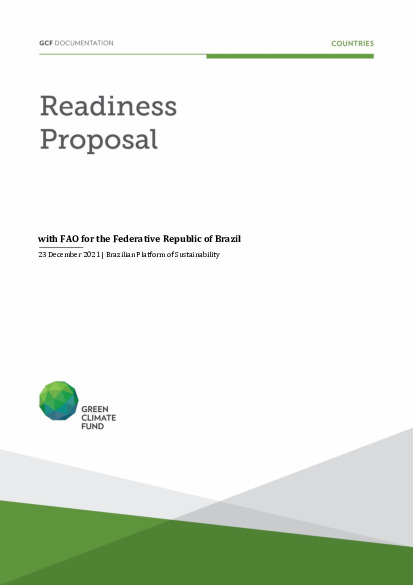Brazilian Platform of sustainability: traceability and certification for cattle and soybeans supply chain in the Amazon

Brazilian Platform of sustainability: traceability and certification for cattle and soybeans supply chain in the Amazon
Brazil presents a comprehensive legal framework that covers climate change and adaptation, as well as a forest code that takes into consideration specificities of different biomes. Nevertheless, the country faces hardships in coupling the enforcement and monitoring of these initiatives. The country has the technological capacity and human resources to develop strong investigations on climate change and reduction of greenhouse gasses (GHG) emissions, but fails to implement it on a large scale, keep track of domestic initiatives, especially those carried out by non-governmental agents, and use the knowledge produced by those initiatives in a coordinated manner. The country is responsible for a significant share of globalGHG emissions, especially due to agriculture and land use, land-use change and forestry (LULUCF) activities, and in the last six years is observing a re-acceleration in its emissions levels.
This readiness proposal will focus predominantly on cattle and soybeans supply chains in the “Legal Amazon”, the official designation by the Brazilian Bureau of Geography and Statistics (IBGE), of the area that shares identical conditions formed by the states of Acre, Amapá, Amazonas, Pará, Rondônia, Roraima, Tocantins and Mato Grosso, and part of the state of Maranhão. It has an approximate area of 5,217,423 km², which corresponds to about 61% of the Brazilian territory.
This proposal aims at reducing GHG emissions by addressing the information gap caused by data being scattered among different entities, in private, public and nongovernmental sectors, that currently do not interact or exchange information, preventing a proper assessment of the situation, more efficient policy design and incentives. It will also favor increasing and organizing the interactions with key stakeholders involved: business associations, NGOs, trading companies, point of sales representatives, certification companies, and producers. This will lead into an enabling environment for enhanced private sector participation in emissions reduction initiatives.